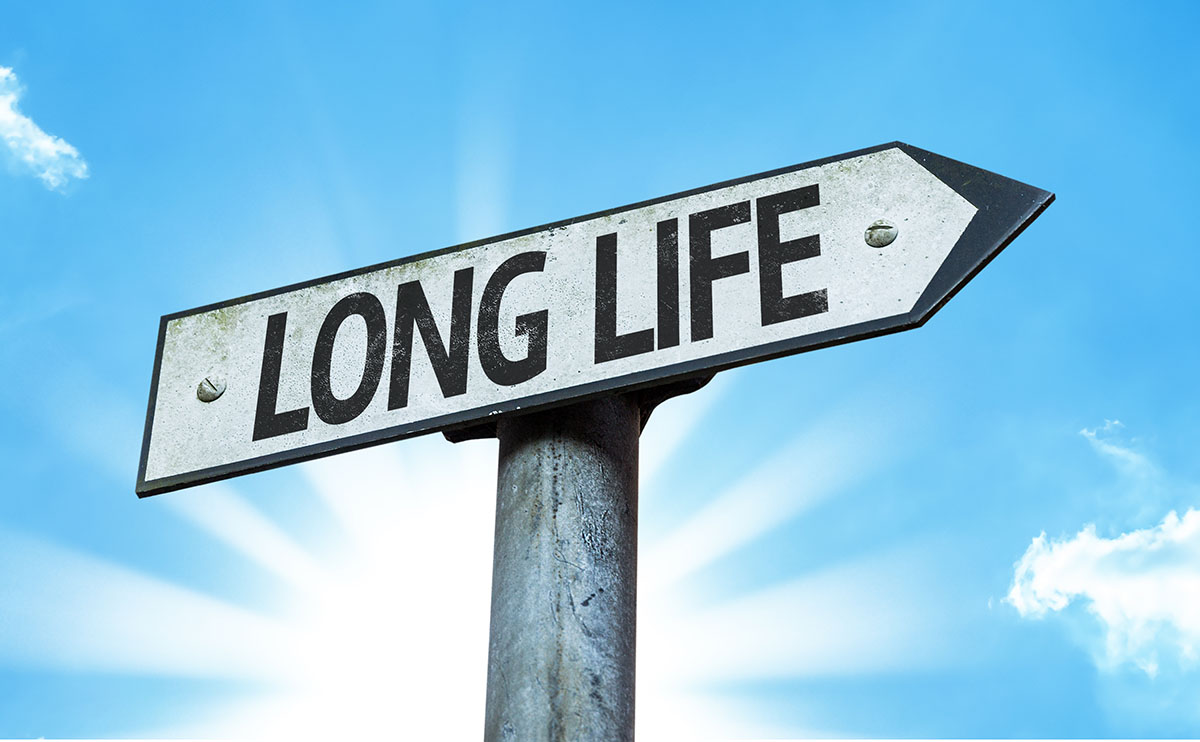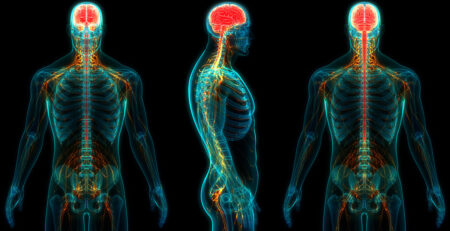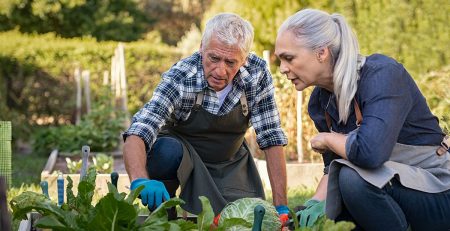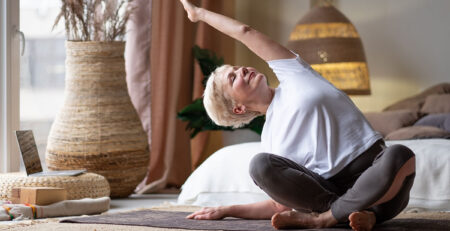10 Ways to Maximize Mental Health in Later Life
Mental health is important at every stage of life from the time we’re young, throughout middle age and into our senior years. Mental health doesn’t just encompass emotions like anxiety or depression, but instead represents one’s overall emotional, psychological, and social well-being.
Why Is Mental Health So Important?
Mental health affects just about every aspect of life including how we think, feel and respond to stress. Our state of mental health gives us either an upper hand in coping or it takes away from our ability to handle stressful situations, regardless of how big or small they may be. Good mental health is associated with the following:
- Living at one’s full potential
- Staying physically active and healthy
- Ability to cope with stressors
- Have meaningful and healthy relationships
- Making contributions to one’s community
- Engage in fulfilling work or career
- Age well
Since mental health is related to just about everything in life, it’s important to pay attention to it and find ways to improve it each and every day. Here are some things to add to your daily routine to maximize your mental health, especially in later life.
1 – Stay Positive
Life will always have its ups and downs, but people who age well tend to see the brighter side of life. They maintain a healthy and positive outlook and believe the best is yet to come. Individuals who have a negative, sarcastic, or bleak view of life will end up viewing experiences that affirm how they feel, just like a self-fulfilling prophecy. You can stay more positive by doing the following:
- Have a positive perspective of yourself because it affects the way you feel
- Use self-talk that promotes high self-esteem, worth and power
- When you are in a positive mood hang onto it for as long as possible
- Get away from negative information and other sources that bring you down
2 – Practice Mindfulness
Being mindful means to literally be fully in the moment and experience everything about that moment like how it feels, the aromas around you, as well as the sights and sounds. When was the last time you stopped to listen to the birds singing and did nothing more? That is being in the moment.
Mindfulness helps us to stay positive and let go of many negative things in life. Here are some tips for being more mindful:
- Pray or meditate regularly
- Slow down to focus on one thing at a time
- Spend more time surrounded by nature
- Put the technology away for a while
- Take lots of deep breaths throughout the day
3 – Practice Gratitude
As we age, we are surrounded by so many things that we should be grateful for including our health, people we love, financial stability, our home, pets, and hobbies. One way to maximize mental health is to practice being grateful for at least one thing every day. What are you grateful for right now? It isn’t that difficult to come up with something quickly, is it?
Studies show that good mental health and well-being is associated with gratitude and happiness. If you want to get really involved in gratitude, keep a list or a journal and write down something you’re grateful for a few times a day. Read it and realize how many blessings and joys you actually have in your life.
You can practice gratitude by doing the following:
- Tell someone how much you love them
- Find something beautiful every day
- Smile
- Complement others
- Call your family and friends
- Avoid negative media
- Commit to no complaining for a day
4 – Take Care of Your Physical Health (Especially Your Gut!)
The strong connection between physical and mental health has been known for quite some time. What is newer in science is the connection between our gut health, the brain and our overall well-being. The gut is so important that it’s being called our “second brain”. Some experts believe it’s more important than the brain and have demonstrated how the gut influences thoughts, feelings and emotions.
Physical health is more than regular exercise. While keeping physically fit and active is important for good mental health, you should also:
- Get good sleep by going to bed and waking up roughly the same time each day
- Form healthy eating behaviors by getting enough nutrients, proteins and vitamins in your diet
- Form a workout routine that you can live with
- Get sunshine as often as possible
- Eat gut-friendly foods like yogurt, almonds, olive oil, garlic, brussels sprouts, peas and Kimchi
5 – Talk and Connect
As we age, it is important to stay connected to people who are meaningful in our lives. It provides a sense of belonging and support. We also need to have that handful of close family or friends who will listen to us as we open up. Being listened to is very powerful for our mental health. We feel valued by others and this boosts our self-esteem and self-image. Having a strong social network can also help during stressful times when we need a little extra help with coping.
Here are some ways to open up and stay connected to others:
- Say “yes” more often when people invite you somewhere
- Get out of the house and go to parks, the mall, or downtown
- If you still work, be happy, funny and cool to be with
- Stay close to your inner circle of family and friends
- Spend as much quality time as possible with those you love
- Join a group, club, or volunteer
6 – Find or Maintain Meaning and Purpose
Some people find purpose in life fairly early while others have to grow into theirs. Sometimes meaning and purpose come with age and wisdom. Either way, know it and embrace it. People who have clearly defined reasons for living (grandchildren, charities, spirituality, career) have better mental health. If you haven’t quite figured out what your meaning and purpose are in later life, try the following:
- Read about life and meaning after retirement
- Read books that have the words aging and wellness in the title
- Identify what brings you the most joy and happiness
- Make time and quality your top priorities
- Donate your time, money or talent
- Surround yourself with positive people
- Explore what reality interests you
7 – Develop Relaxation Techniques
Everyone has some activity or method that brings stress-free relaxation. Relaxation is important for both mental and physical health as it can slow down breathing, and reduce blood pressure, muscle tension and stress. These techniques allow the body to produce natural relaxation responses. Some relaxation techniques include:
- Progressive relaxation (tighten then relax each muscle group)
- Guided imagery (focus on positive images)
- Biofeedback (electronic devices help you learn to control breathing, heart rate and muscle tension)
- Self-hypnosis (trance-like state of deep relaxation)
- Deep breathing (slow, deep and even breaths)
8 – Do Something for Someone Else
A great way to help yourself and others is to do something for a friend, family member or neighbor that puts the focus off yourself and solely on them. You improve your mental health while being helpful to others, so it’s a win-win situation. Studies show that being helpful or kind to others has a beneficial effect on how you feel about yourself and actually relieves stress. Try doing some of the following and see how it makes you feel.
- Give blood, someone always needs it
- Become an organ donor
- Clean up a park or areas of your community
- Help out a local charity
- Volunteer at a pet shelter
- Open doors for people
- Commit random acts of kindness
9 – Develop Better Coping Skills
Coping skills are important at every age throughout life, but due to the nature of aging and the many losses that it may bring, it’s important that older adults and seniors have effective ways to cope with life situations. What are some of the losses that accompany aging? We may lose our spouse or significant other, family members, friends, jobs and careers, our home, and independence. We might lose the ability to get around, drive, shop, or travel. Our senses (vision, hearing, touch, taste and smell) will diminish over time. So, how can we learn to better cope with these losses and still maximize our mental health and quality of life?
- Take care of your physical health
- Remain as active as possible
- Keep a circle of positive people around you
- Do what you love
- Set a new schedule to improve your sleep and energy
- Get help from professionals
- Ask friends and family for support
- Engage in effective problem-solving
10 – Pray or Meditate
Research shows that people who connect spiritually to a higher power, God or the universe have better mental health. They use faith to deal with stress and problems in their lives. Many people believe the mind, body and spirit are all connected, so intuitively the association between spirituality and good mental health makes sense.
Types of meditation like mindfulness or transcendental meditation involve being in a quiet and peaceful place, free of distractions. You then get into a comfortable posture and focus attention on a word, thought or breathing.
The benefits of prayer and meditation on mental health are plentiful including:
- Increased happiness and joy
- Decreased anxiety and stress
- Diminished depressive emotions
- Improved learning and memory
- Emotional stability
- Feelings of compassion, hope, forgiveness and gratitude
Final Thoughts on Maximizing Mental Health Later in Life
Good mental health is important and vital for quality of life. While sadness, fear or anxiety may affect most people sometime in their lives, there are ways to improve mental health and become more resilient as we age. The key is to identify what works best, since no two adults are the same.












